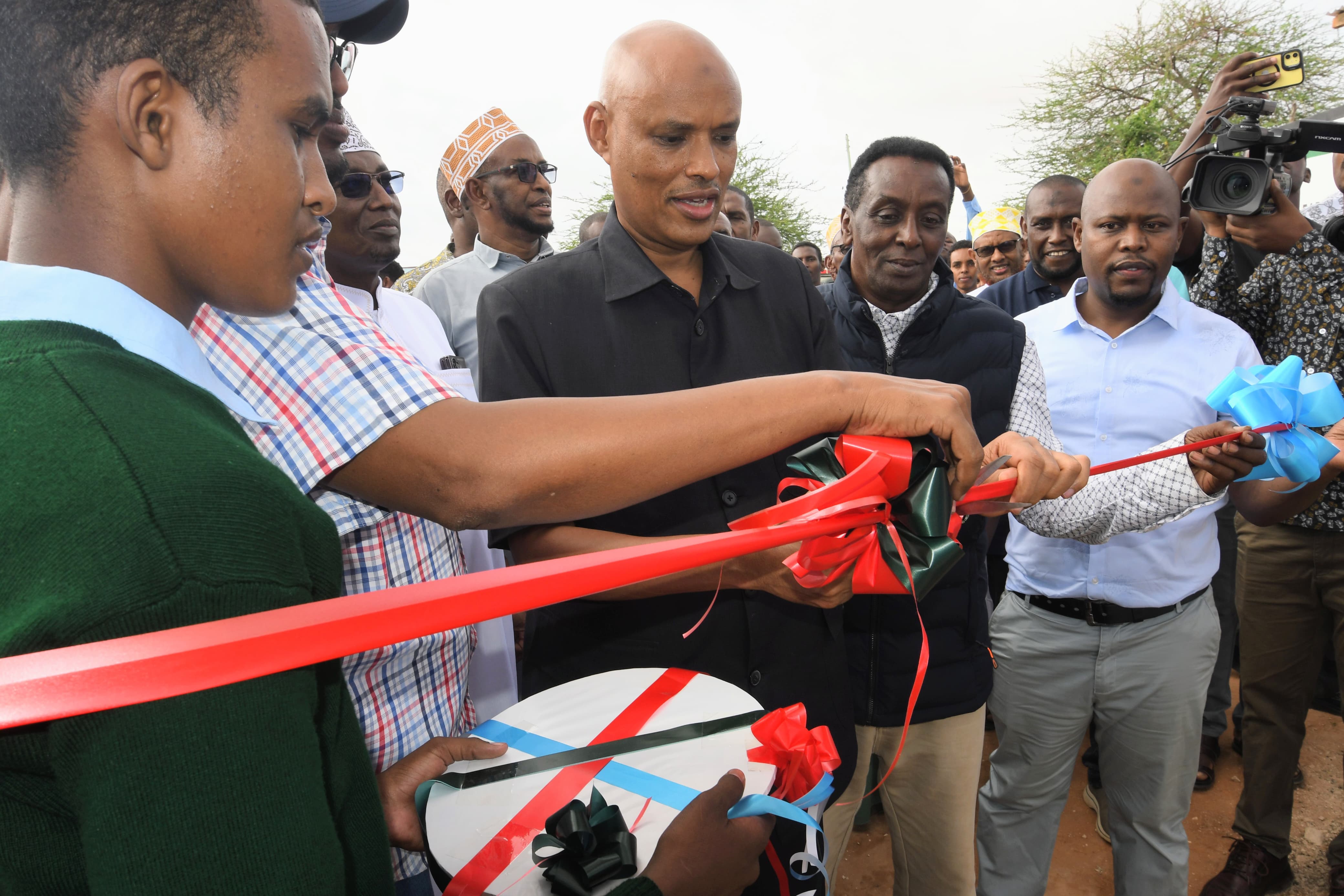
The Director of Criminal Investigations (DCI), Mohamed Amin, has called for a concerted effort from all stakeholders in North Eastern Kenya to combat radicalisation.
Radicalisation in the region persists due to both internal vulnerabilities and external threats.
The area has suffered numerous terror attacks targeting security officers, civilians, and places of worship.
In some cases, the attacks have been carried out by radicalised Kenyan youth.
Recognizing this reality, Amin urged parents, educators, community and religious leaders, as well as neighbors, to unite in supporting the youth, whom he noted are the most vulnerable to recruitment into criminal groups.
The DCI boss made these remarks in Wajir at Sabunley Senior School—his alma mater—during the handover of a newly constructed perimeter wall.
“We must create an environment that nurtures their aspirations, keeping them engaged in positive and constructive activities. By providing mentorship, resources, and opportunities, we can empower them to pursue their dreams and become active contributors to our society,” he said.
Amin acknowledged that while the security situation in the area remains stable, residents must not become complacent. He urged continued collaboration with security agencies to maintain peace.
“I am pleased to note that the security situation in Wajir County remains stable, thanks to effective coordination among our county and sub-county security teams and the residents. I want to commend everyone in this county for working diligently to ensure our security is not compromised,” he said.
However, he raised concerns over the rising cases of gender-based violence in the area, stressing the need for urgent intervention and commitment from all stakeholders to find lasting solutions.
He also highlighted challenges posed by the use of maslah, an informal, customary dispute resolution system.
While acknowledging its role in resolving minor disputes, Amin discouraged its application in serious criminal cases, which he said should be handled by the courts.
“It is unfortunate that maslah has been used to undermine the rule of law and hinder justice for victims. We must stand united in support of the rule of law, which upholds the rights of all individuals,” he said.
Human rights activists have consistently raised concerns about the misuse of maslah, arguing that the patriarchal system often disadvantages women and girls, as decisions are typically made by male elders without gender-sensitive considerations.
Victims, particularly women and girls, are often pressured or coerced by family members or clan elders to accept maslah resolutions, which rarely prioritise their needs or rights.
On land disputes, Amin noted that while existing conflicts have been contained, it is essential to strengthen mechanisms for swift resolution to prevent further escalation.
“We must enhance collaboration among all stakeholders, including elected leaders, to promote peace, security, and sustainable development in our region,” he said.












